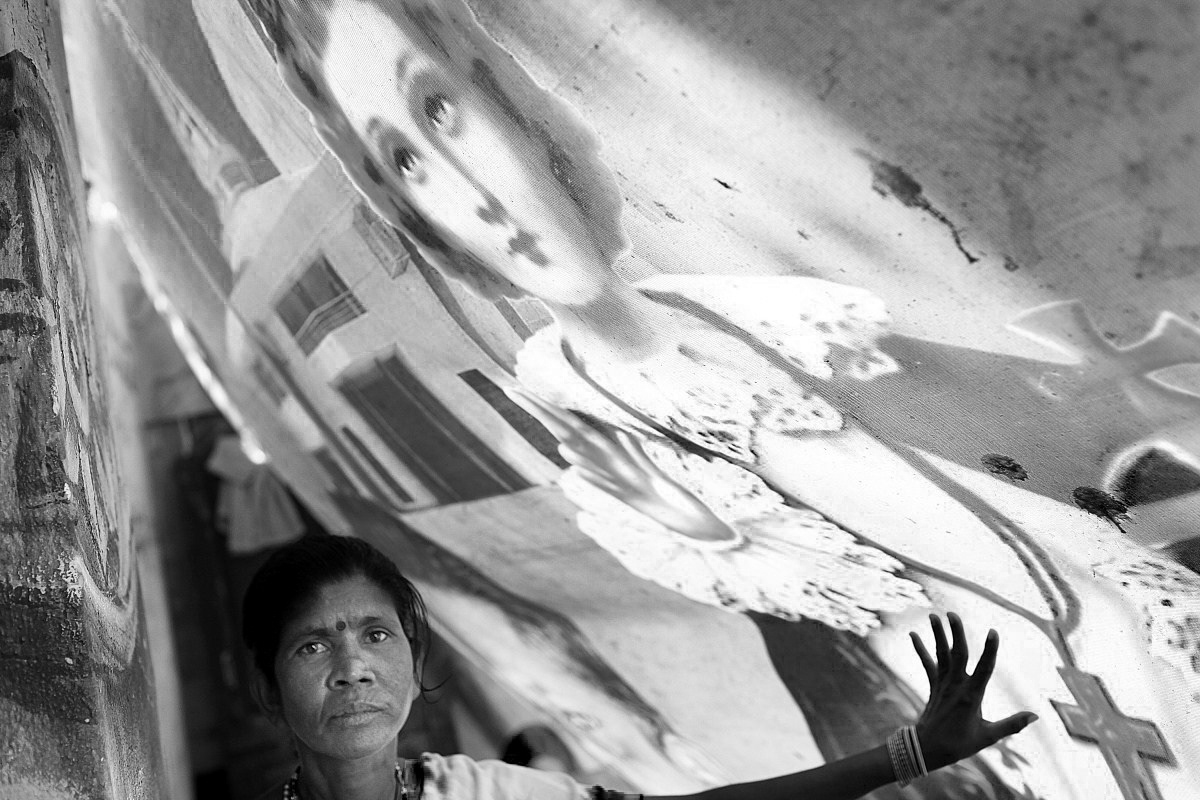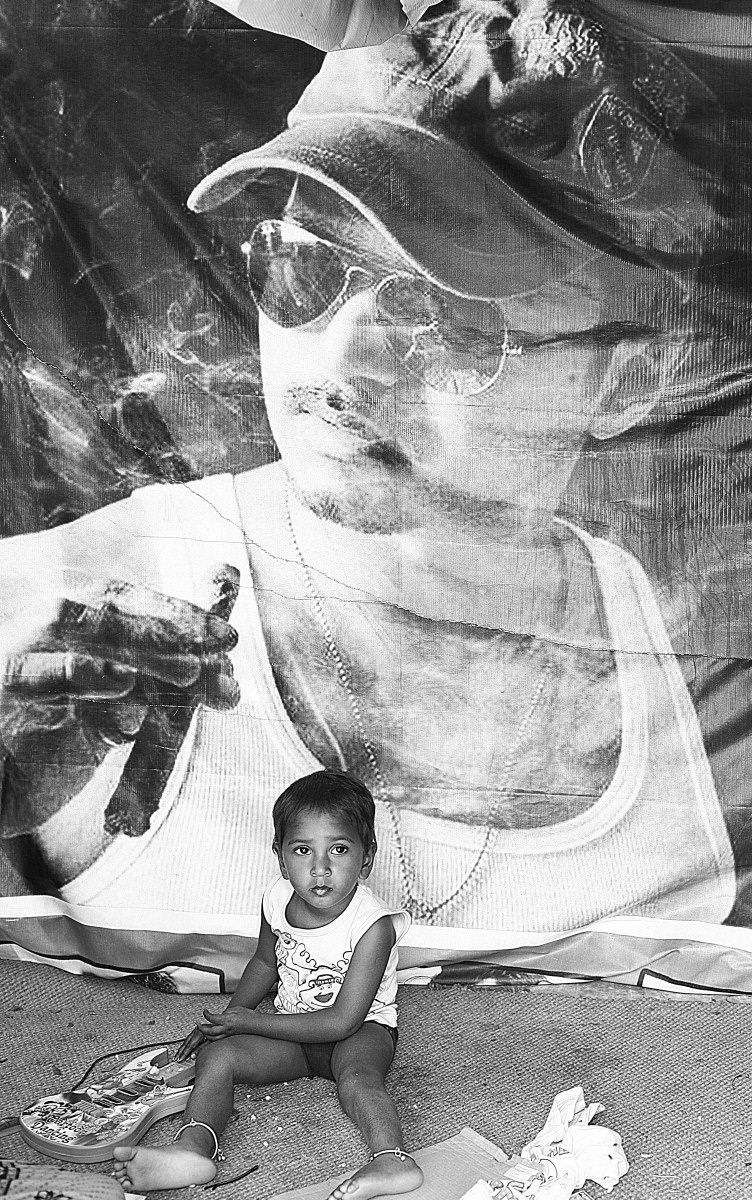Ladies and children gather at dusk on Friday to talk about many issues plaguing them. Sexual assault is a big problem and many women and young girls are at risk. 1200 Women and 2000 children were evicted during the demolition of the EWS Ejipura quarters, Ejipura, Bangalore
Difficulties started right at the beginning with the life threatening construction of the quarters; they were continued by complete negligence of safety and health measures, resulting in 6 deaths.In January 2013, the residents faced the culmination of 2 decades of unresolved problems: a mass demolition of their homes, displacing 5000 people. Of these 1200 were women and 2000 children.
The land that they were living on has been sold to Maverick Holdings (a private builder) to build a mall, even though this land was specifically earmarked by the government for those living below the poverty line. This sale by the BBMP (Bangalore’s city corporators) is still being questioned. Neither Maverick nor the government have provided any alternative housing option for residents, although this was mandated in earlier resolutions by the BBMP. The Karnataka Slum Development Board (KSDB) has claimed that they will build housing in the outskirts of the city. However, there are little or no livelihood opportunities in these areas, standards of education and living are poor, and they claim completion will take at least two more years. The issue of rehabilitation looms unresolved.
John Peter (21) has lived in EWS Quarters Ejipura his entire life or “A to Z” as he puts it. He stands defiantly in front of the fencing put up by the BBMP and Maverick Holdings to keep people from the land
MLA N.A. Haris (Congress), who represents the Shantinagar constituency, addresses Ejipura evictees during the March 2013 meeting that was called to share plans of new housing in Sarjapur to be completed in two years. Now, 6 years later, the housing is yet to be completed.
Jayanthi, 17, was 7 months pregnant when she was evicted from her home. Living in filth, without access to a toilet or medical attention, she struggled with her advanced pregnancy.
Palliniswamy, 60, sleeps in a giant pipe link on the road. He lived in EWS Ejipura for 20 years before being evicted.

Anthonyamma, 56, works as a canteen cleaner from 6 AM to midnight. She has lived in Ejipura, Bangalore, for 20 years, but now uses a banner from a local church as a roof and wall

Susairaj, 23, used to be employed as an office assistant. He was fired when his employers discovered that he was living on the street. His son, Kevin, was two in this photo. Susairaj has spent 18 years at the EWS quarters at Ejipura.
Sarla (40) is an acid attack survivor, who was homeless and unemployed. She still finds joy and pride in her dog Caeser
Violet, 70, and her husband used to live in the neighbouring Yellanagar slum (Image 3). When that was demolished, they moved into EWS Ejipura. Evicted for the second time, she stood in the only space she had, with no walls or even a sheet over her head. Her few belongings were rotting in the rain. The new housing that was supposed to be ready for Yellanagar slum residents like her months ago was in a half finished crumbling state years after it was to be completed leaving residents like Violet out on the street. Event this crumbling edifice was occupied by squatters.